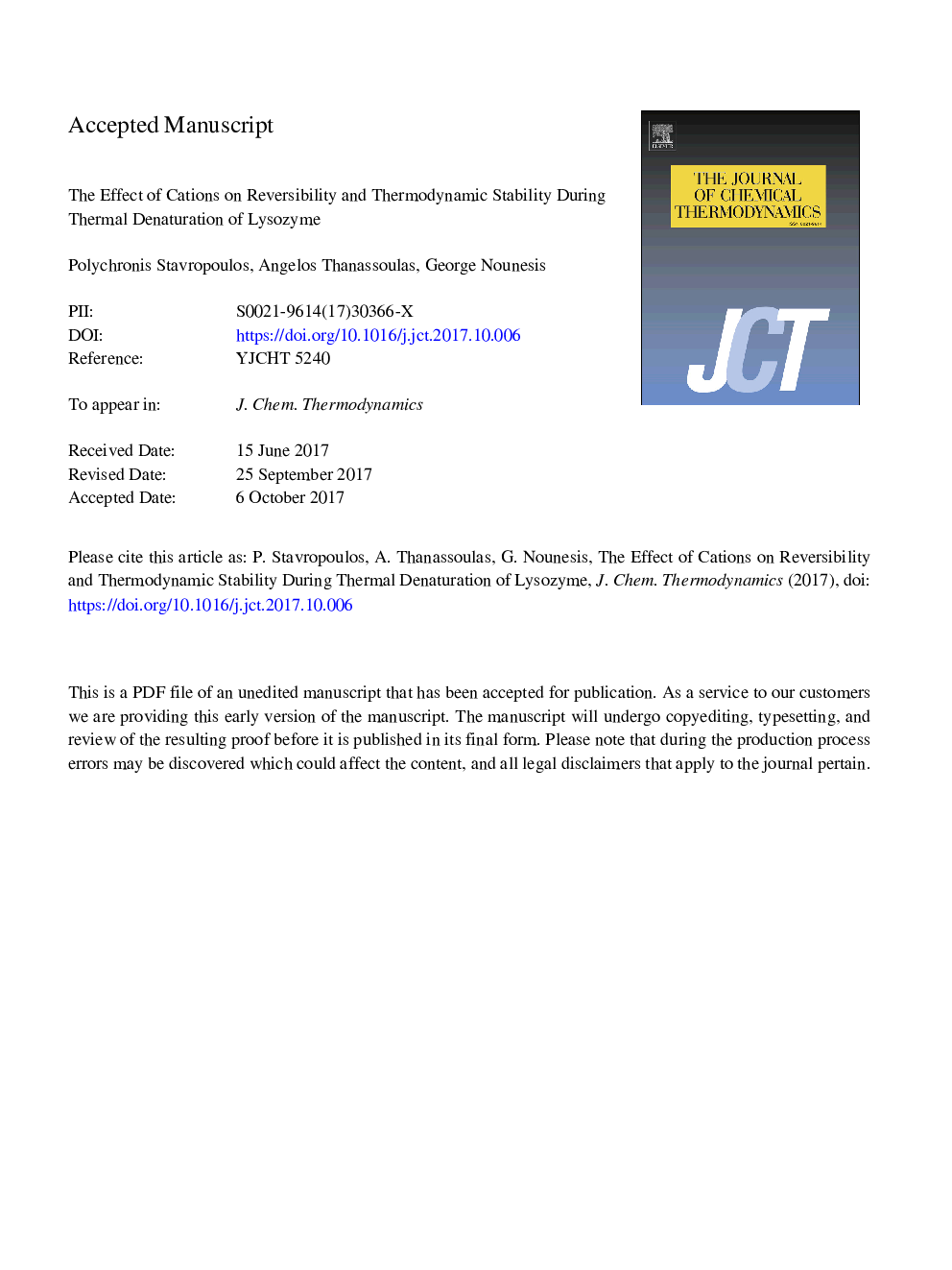| Article ID | Journal | Published Year | Pages | File Type |
|---|---|---|---|---|
| 6659880 | The Journal of Chemical Thermodynamics | 2018 | 28 Pages |
Abstract
Differential scanning calorimetry (DSC) has been used to investigate the role that cations of different salts (CaCl2, MgCl2, NH4Cl, NaCl and KCl) play on the thermodynamic stability and reversibility of the lysozyme's folding-unfolding process. In this work, thermodynamic parameters such as enthalpy change ÎÎ, apparent heat capacity change (ÎCp) and the melt transition temperature (Tm) were obtained in order to explore the effects of various cations on the thermodynamic stability and thermostability of lysozyme, reflected on the Gibbs free energy change and the melting temperature of the transition. Furthermore, the reversibility index (RI) has been calculated in order to study the reversibility of the process and the effect of cations on protein aggregation. Under all conditions studied, lysozyme undergoes reversible thermal unfolding that can be well represented by a reaction of the form Nâ¯ââ¯U indicating that the unfolding is a two-state process for the first and the second heating runs that have been used in current experimental analysis. The results of those experiments clearly show that cations destabilize the lysozyme and increase the reversibility of the unfolding process.
Keywords
Related Topics
Physical Sciences and Engineering
Chemical Engineering
Chemical Engineering (General)
Authors
Polychronis Stavropoulos, Angelos Thanassoulas, George Nounesis,
